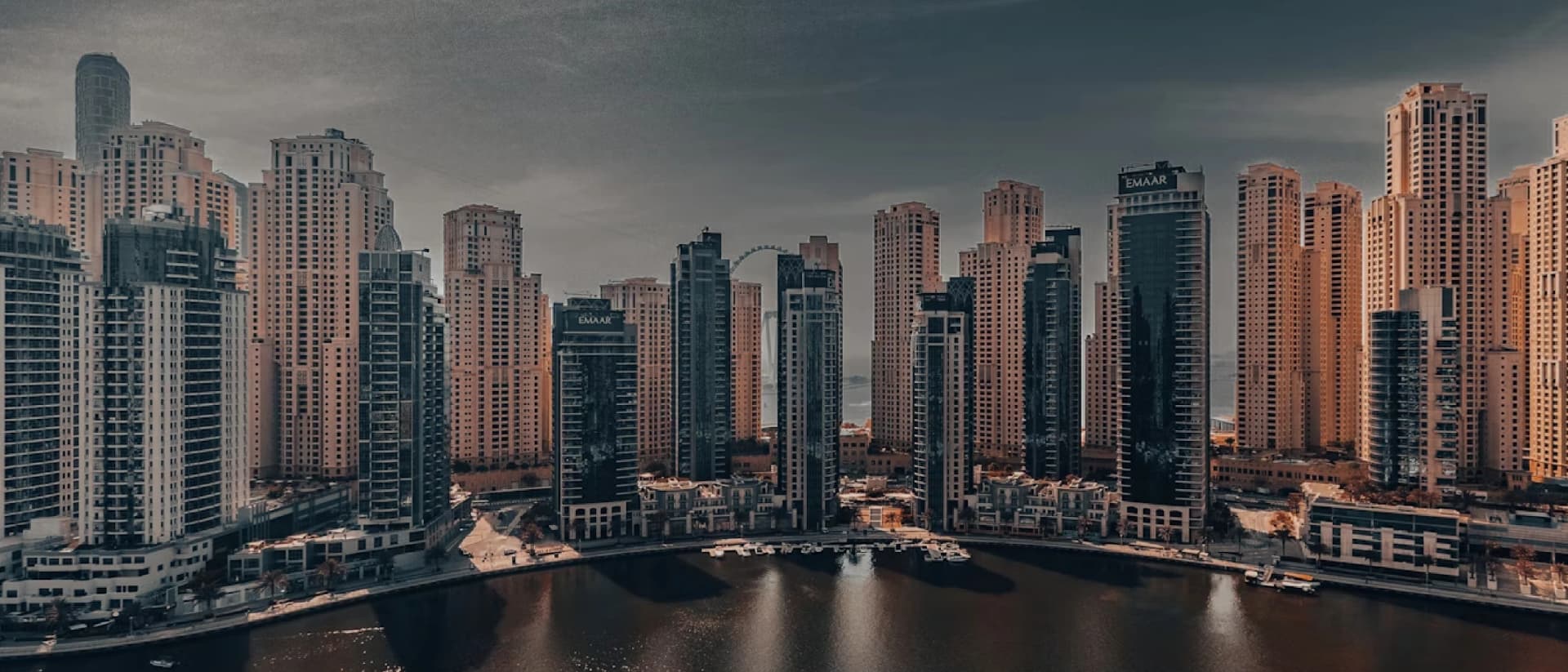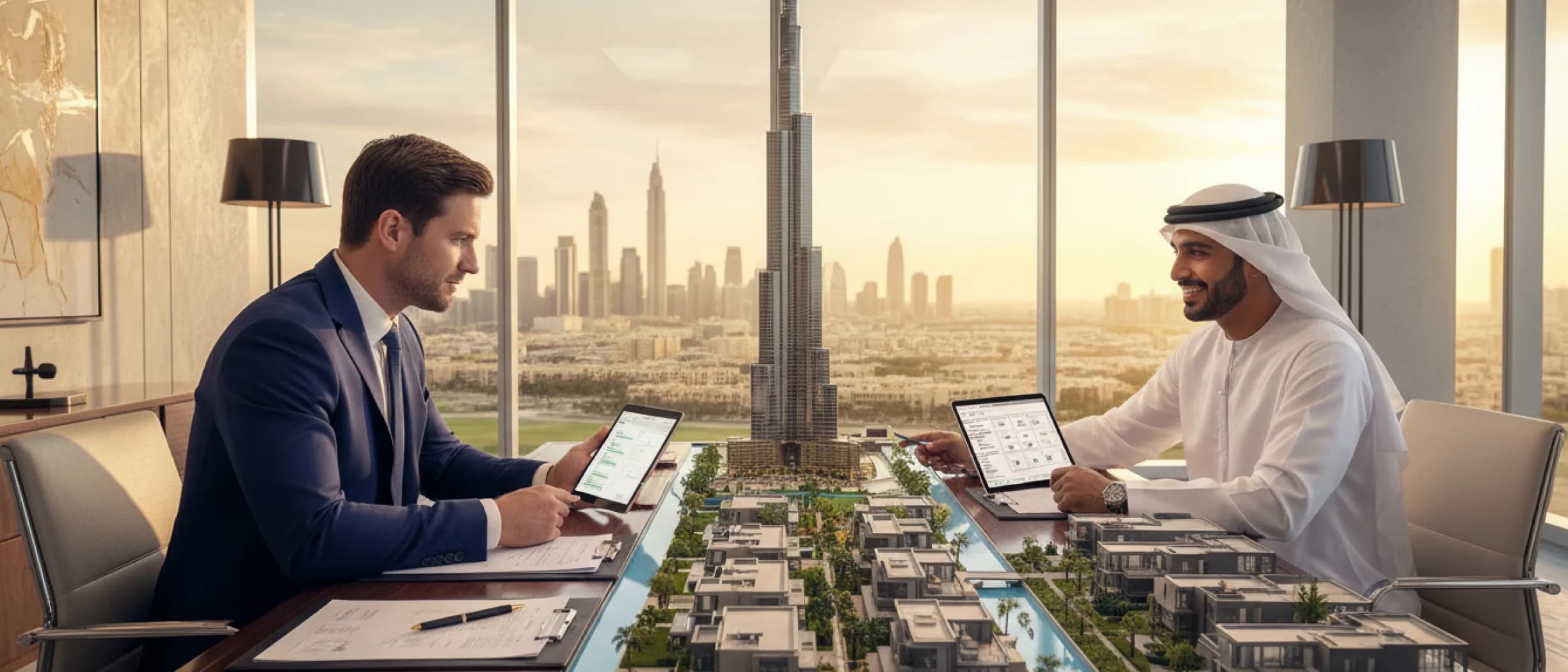
Adil Raza Khan | March 29, 2025

The Dubai government has instituted real estate laws addressing legal aspects for realtors and investors. This is to provide seamless property transactions. That’s why it’s important to understand the inheritance laws for Dubai real estate. This is essential for the investors and the buyers to have a comprehensive grasp of the property landscape in the dynamic Emirate.
Dubai, a prominent emirate in the UAE, relies significantly on tourism and real estate for its economic prosperity. A thorough understanding of Dubai’s property laws is essential for successful property transactions.
The real estate laws in the UAE encompass various aspects of buying, selling, and owning properties in Dubai. If you’re considering a property purchase in Dubai, here are key points to keep in mind:
Buyers must to deposit 10% to 20% of the total property price during a purchase in Dubai.
In transactions involving newly constructed projects, payments are typically made in instalments as per the Real Estate laws in Dubai.
According to Dubai’s Real Estate laws, the transfer of funds to the vendor or a third party is a standard practice in property purchase contracts.
When making a property payment through the vendor, a 2% fee of the property price is applicable. In addition to these considerations, it’s crucial to be aware of three major Dubai property laws that every investor, seller, and buyer should understand before entering the Dubai real estate market. Furthermore, Dubai’s inheritance property laws play a significant role. It enables a seamless transfer of property rights to beneficiaries in the event of the owner’s demise.
Being well-versed in these regulations ensures a comprehensive approach to navigating the dynamic Dubai real estate landscape.

Historically, foreign investors faced complexity when purchasing property in Dubai. This is due to restrictions in the UAE property laws, which prohibits expatriates from ownership. In response to the increasing interest of expat investors in Dubai real estate, Sheikh Mohammad Bin Rashid Al Maktoum, the ruler of Dubai, introduces new Dubai Real Estate laws. These regulations now grant expatriates freehold lease rights for up to 99 years. This signifies a significant departure from previous restrictions.
Since the enactment of these laws, expats can own property in Dubai within designated freehold or leasehold areas. Also, it mirrors the property rights enjoyed by Dubai citizens throughout the city. These rights, whether freehold or leasehold, align with property ownership norms in other countries. Expatriates holding such properties have the liberty to utilize them during the lease period or indefinitely. Notably, expats can transfer these rights to dependents or any designated person, allowing for intergenerational property ownership.
In the event of the freeholder’s demise, beneficiaries are entitled to inherit the assets, subject to compliance with Dubai’s government regulations. Moreover, to maintain ownership of a freehold property in specific Dubai areas, investors must secure approvals from the current government of Dubai, ensuring compliance with local regulations. This nuanced approach to property ownership and inheritance laws for Dubai real estate reflects Dubai’s commitment to facilitating foreign investment while upholding legal integrity.
Disclaimer: The information above is for general informational purposes only and does not serve as legal advice.
The legal landscape is subject to change, and specific situations may require consultation with legal professionals. Readers need to seek legal counsel to obtain accurate and up-to-date information tailored to their individual circumstances. While efforts have been made to ensure the accuracy of the content, no guarantees are made regarding the completeness, accuracy, or suitability of the information provided.
Reliance on any information in this context is solely at the reader's own risk. In the Emirate of Dubai, the sale of residential properties inherited by heirs is regulated by two significant legal decrees. That is, Dubai Decree No. 23/2020 on the Regulation of the Sale of Residential Real Estates by the Heirs and Dubai Decree No. 25/2023 Establishing the Estate Court.
Dubai Decree No. 23/2020 – Regulation of the Sale of Residential Real Estates by the Heirs:
This decree specifically addresses the regulations governing the sale of residential properties inherited by heirs in Dubai.
It applies universally to all residential properties within Dubai. However, it excludes those granted under the Mohammed bin Rashid Housing Establishment.
Applying without distinction to designated and non-designated areas for foreign ownership, Dubai Decree No. 23/2020 is applicable to all nationalities. The decree ensures that the sale of inherited properties follows legal requirements, safeguarding the rights of all involved parties. That is, including heirs and potential buyers. It outlines precise procedures and required documentation to initiate and conclude the sale transaction.
It aims prevent fraudulent practices and promote transparency in the real estate market. The law lays its roots in the principles of active governance and works to maintain the integrity of inheritance property laws in Dubai. This, in turn, fosters a secure and fair environment for property transactions.
Navigating the legal procedures for selling inherited property in the dynamic real estate landscape of Dubai requires a keen understanding of the governing laws. Dubai Decree No. 23/2020 plays a pivotal role in regulating the sale of residential properties by heirs, ensuring a transparent and lawful process for all involved parties, regardless of nationality.
As the real estate market continues to evolve, these legal frameworks underscore Dubai's commitment to maintaining integrity and fairness in property transactions. Investors, heirs, and potential buyers alike can find assurance in the procedures outlined by the decree, promoting a secure environment that upholds the principles of inheritance property laws in Dubai.
It is important to note that the information here serves as a general guide, and individuals need to seek professional legal advice to address specific circumstances. By staying informed and engaging with legal experts, stakeholders can navigate the complexities of selling inherited property in Dubai with confidence and compliance.

WRITTEN BY
Adil Khan is a Dubai luxury real estate expert with over 13 years of experience in the UAE property market. He is the Chairman of APIL Properties.

If you’ve been wondering How Can Foreigners Buy Property in Dubai 2025, here’s the good news — Dubai’s real estate market is among the most open and foreign-friendly in the world.
Dubai remains a destination for international investors. With 100% ownership rights to specific locations, no property tax per annum, and an easy process of buying property – this city remains a premium address for the UK, India, Russia, China, and other international investors.
When buying a property in Dubai as a foreigner, you get guaranteed returns on investment, the opportunity to stay at least long-term, and access to the expatriate-specific financing opportunities offered by the country, such as the UAE Golden Visa.
In this comprehensive guide by APIL Properties experts, we will discuss all the details that a foreign buyer must have in 2025—property ownership legislation, mortgages, registration costs, and insider tips to avoid blunders

Is Emaar Beachfront Dubai the best investment for foreign buyers in 2025?
Absolutely—and here's why. Emaar Beachfront, comprising the two islands between Dubai Marina and Palm Jumeirah, is one of Emaar Properties' most demanded waterfront communities. It combines opulent Island living with a high real estate yield.
With the increasing influx of foreign investors to purchase freehold beachfront apartments in Dubai, Emaar Beachfront is unique because of its high ROI potential, master plan of world-class facilities, and its exceptional beach access. This destination has since been the hub of attracting international investors in a tax-friendly market with long-term capital growth and premium rental yields.
With professional knowledge of APIL Properties Dubai, this guide will help you understand why Emaar Beachfront remains one of the most intelligent property investments worldwide.
_1761109412.webp&w=3840&q=75)
Did you know recent reports indicate that almost half of the luxury property buyers in 2025 will be international buyers? This trend has continued to favor the high demand for Meraas off plan projects in Dubai 2025.
Meraas stays at the forefront with visionary communities combining lifestyle, design, and financial development.
Such New Off-Plan Projects by Meraas Holding provide international investors with access to premium waterfronts, sustainable design, and a flexible payment structure that are scarcely found in the world's real estate markets.
We have shortlisted Meraas's latest off-plan projects, which combine comfort with the prospect of high ROI. Remember – Meraas has the most promising ideas for Dubai in 2025, beginning with coastal icons and green sanctuaries.